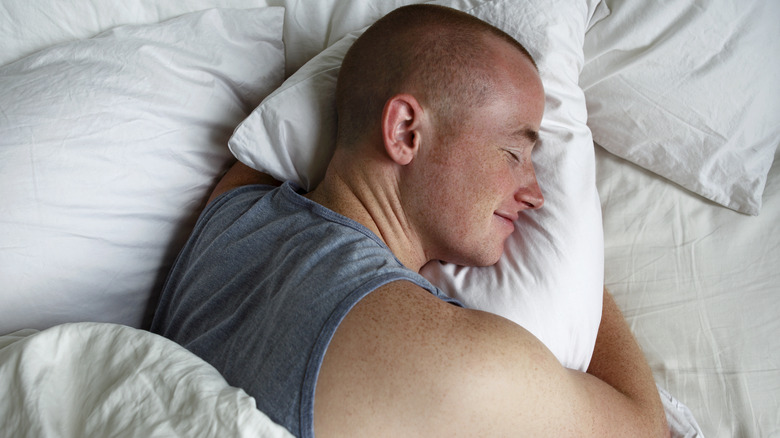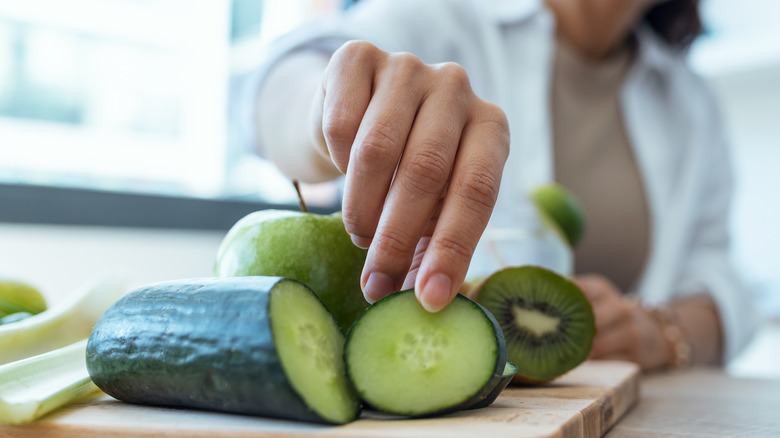Sleep health is complex and doesn’t have a universal remedy. Reducing screen time, lowering the thermostat, indulging in a calming book, or practicing deep breathing exercises are among the numerous strategies to enhance sleep quality. Although midnight snacking is often discouraged, a small, smart snack before bedtime might aid in better sleep. Enter the cucumber.
These vegetables, primarily composed of water, also contain over 39 milligrams of magnesium, 48.2 milligrams of calcium, 72.2 milligrams of phosphorus, and an impressive 442 milligrams of potassium all in just one cucumber, according to the U.S. Department of Agriculture (USDA). Experts at DoveMed highlight that magnesium, in particular, may aid in promoting sleep.
A 2012 study published in the Journal of Research in Medical Sciences discovered that magnesium supplements improved sleep efficiency, duration, and latency in older adults with insomnia. The researchers explained that magnesium plays a role in regulating the nervous system, facilitating relaxation.
Cucumbers contain magnesium, melatonin, and B vitamins

Besides magnesium, cucumbers also contain melatonin, as noted by More Smiles Dental Spa. While more research is needed, a 2014 study in Nutrition Journal suggested that melatonin supplementation might enhance our natural circadian rhythm and reduce sleep onset latency for those who struggle to fall asleep early.
If you’ve had an evening out with drinks, snacking on cucumber slices before bed might help avert a morning hangover, as suggested by the Orthopedic Center for Sports Medicine. Cucumbers replenish the B vitamins and electrolytes lost after alcohol consumption, helping you maintain your body’s essential nutrient balance and potentially preventing headaches. Thiamine, one of the B vitamins in cucumbers, may promote better sleep quality, according to the Alaska Sleep Clinic.
Too much cucumber may lead to more midnight bathroom runs

While the magnesium, melatonin, and B vitamins in cucumbers can benefit sleep, there’s one element that could counteract these effects. A single cucumber (301 grams) contains 287 grams of water, according to the USDA. Given that water constitutes nearly the entire vegetable, consuming a substantial amount of cucumber before bed may fill your bladder overnight, potentially causing sleep interruptions due to bathroom visits.
If sleep issues persist, it may be beneficial to consult a doctor. While cucumbers alone won’t resolve sleep challenges, incorporating a few slices as part of a healthy routine may help. This includes maintaining a regular sleep schedule, engaging in daily physical activity, and avoiding heavy meals, caffeine, or alcohol in the evening.



